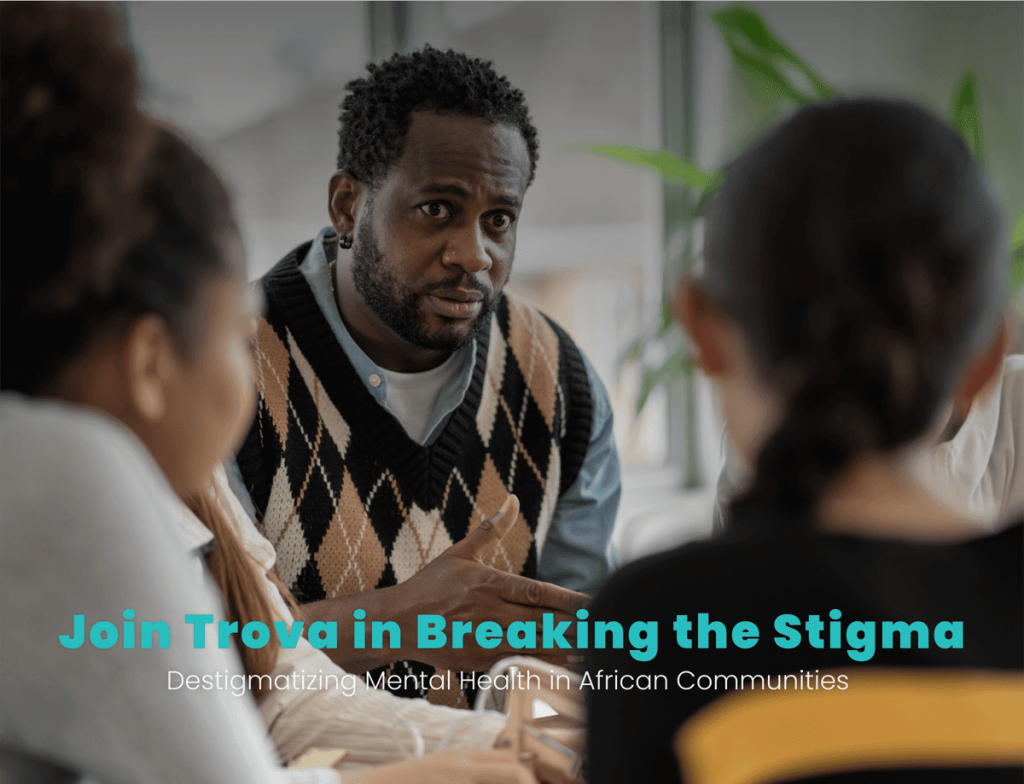Did you know that mental health stigma remains a significant barrier in many African countries, including South Africa, Nigeria, and Kenya? Despite increasing awareness and efforts to promote mental well-being, outdated beliefs and cultural taboos continue to hinder progress. In these communities, seeking help for mental health issues is often viewed as a sign of weakness or even a Western concept that is shunned. As a result, many individuals suffer in silence, fearing judgement and discrimination.
At Trova, we are committed to changing this narrative and fostering a culture of openness and acceptance around mental health. To shed more light on this critical issue, we spoke with Bara Wiwa, a psychologist and psychotherapist based in Lagos, Nigeria. Bara works with individuals, families, and couples struggling with mental health issues, addiction, trauma, and more.
Reflecting on the mental health stigma in Nigeria, Bara noted,
“In Nigeria, there’s significant religious stigma around mental health. Many turn to religious solutions over professional help, even bringing pastors to hospitals for conditions like schizophrenia. This stigma deters individuals from seeking therapy, fearing the ‘crazy’ label.”
She emphasised the importance of balancing spirituality with professional mental health care.
“While spirituality is important for well-being, a balance between it and professional help is crucial. Open-mindedness allows for exploring both avenues and developing healthier coping mechanisms. Creating a supportive space fosters openness to various wellness approaches.”
Despite these challenges, Bara sees a growing awareness of mental health.
“Despite the stigma, many in Nigeria are seeking therapy, showing a growing awareness of mental health.”
Navigating cultural stigmas requires patience and understanding. Bara shared her approach:
“It’s about meeting individuals where they are, educating, and dispelling misconceptions. Creating a safe space for dialogue involves repeated explanations and accommodating cultural beliefs, especially in family sessions.”
Platforms like Trova play a vital role in this process.
“With knowledgeable professionals and centralised services, Trova ensures users feel supported and secure. It’s about respecting cultural beliefs while offering diverse support options,” Bara added.
Let’s work together to create a more supportive and inclusive environment for mental health care in African communities and beyond.
| Let’s work together to create a more supportive and inclusive environment for mental health care in African communities and beyond. |
| Bara Wiwa- Clinical Psychologist |

| Share your thoughts, strategies, and success stories on social media using the hashtag #DestigmatizeMentalHealth and tag @trova.health to join the conversation. Together, let’s challenge stigma, raise awareness, and empower individuals to prioritise their mental well-being without fear or shame. |
| Join Trova Today |
